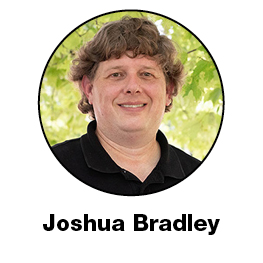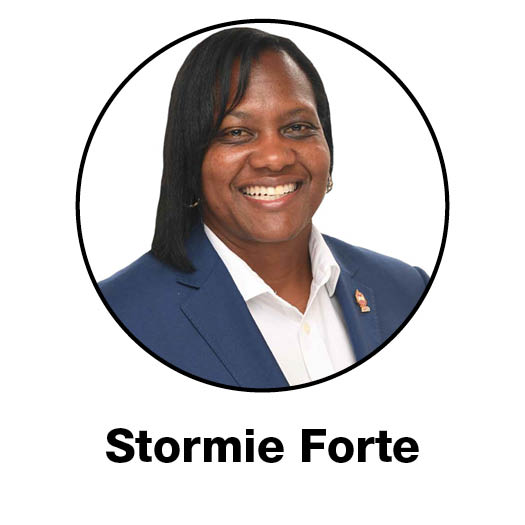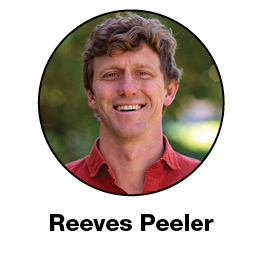Voter Guide – 2024 – At Large
Our Voter Guide provides candidate responses to voter concerns gathered from our citywide poll.
For incumbents, relevant Council record items are included.
Click on candidate images to view their Full Questionnaire Answers
See Poll Findings Here: Polling Results
Finding More Details
If you don’t see an issue you care about addressed for an individual candidate, they may not have addressed the issue in the answers they gave in response to our questionnaire. Click on a candidate’s image to review their full responses.
Restoring Confidence in Council
Declining confidence in Council marked one of the biggest changes from two years ago. In our new poll, 73% of voters said the city does not do a good job of keeping residents informed, up substantially from 49% in 2022. The undue influence of special interests is still a big concern, with 71% of voters saying the city is still too beholden to developers. To correct that imbalance, 73% of 2024 voters said Council campaign donations should be capped at $500. Only 23% of voters approve of Council doubling their terms to four years. (See Questionnaire Items Q1 – Q6)
Bledsoe– Expresses strong support for CACs, better public outreach & donor cap. Strongly opposes Council’s action to secretly add a year to their terms. Opposes 4-year terms of office. 2-year terms provide more accountability.
Bradley– Expresses strong support for CACs, supports publicly funded elections & donor cap. Strongly opposes Council’s action to secretly add a year to their terms. 2-year terms provide more accountability. If elected, will advocate to repeal the change to 4-year terms.
Forte(Incumbent)– did not respond to our questionnaire.
Record in office– In 2021, voted to permanently move elections to even years adding a 3rd year to the council term with no public notice or input. In 2024, voted to move to 4-year terms even though every time the council asked the residents their preference, the public OPPOSED moving to 4-year terms. Voted to reinstate CACs in Feb 2024 but has taken no concrete action to make that happen in any meaningful way.
Melton(Incumbent)– Worked hard to address the growing deficit in confidence and trust in government. Supports campaign donor caps at $1,000.
Record in office– Voted to defund CACs in 2020 without public notice or public input. In 2021, voted to add an extra year to the council term, again without public notice or input. After apologizing for both actions, did it again, voting to double Council terms after previously saying voters should decide council term lengths by referendum. In Feb 2024, voted to reinstate CACs but has shown no leadership to make that happen. In regards to the most recent issue with the Red Hat Amphitheater, Melton is the liaison to the Raleigh Convention Center & Visitors’ Bureau. As such, should have been fully aware of the plans for moving the amphitheater and kept BOTH the residents and other councilors up to date on the issue. There is no excuse for the council saying they only recently were made aware of the need to close South St. States support for campaign donor caps but has taken no action toward the goal, and instead outpaces all competitors in development donations.
Peeler– We need better outreach for key growth & rule changes, especially underserved populations. Reduce money in politics, including donor cap. Secretly adding a term year represents “authoritarian disdain for transparency & truth.” Agrees with the change to 4-year terms. 2 years is not long enough to institute policy changes.
Empowering Residents
In the 2022 election citizen engagement was a top campaign issue. Our polling has found that the city has gotten worse at keeping residents informed since then. 73% say the city does a poor job of keeping residents informed compared to 49% in 2022. 74% of respondents say neighborhood rezoning meetings should be returned from developer control to CACs. (See Questionnaire Items Q7 – Q10)
Forte(Incumbent)– did not respond to our questionnaire.
Record in office– Does not hold community meetings to engage with constituents outside of formal City Council meetings. Actions and reasoning have been hard to determine because seldom contributes to discussion at hand, provides little reasoning for votes. Co-chair to the City/County Joint Housing Stability Coalition but never reports on the matter. Although invited, rarely attends CAC meetings and “doesn’t participate or inform.”
Melton(Incumbent)– Supports staff run rezoning meetings. Restore CAC support without a role in rezoning. Says staff will restore inactive CACs.
Record in office– Holds regular community “office hours” meetings to engage with constituents. Staff has said they are not responsible for restoring inactive CACs.
Mitigating Growth Impacts
Raleigh’s Missing Middle rules were another big issue in the 2022 election. Our poll shows only 29% of voters support these new rules. Criticisms include failing to inform the public about rules affecting their most important investment and enacting rules promoting market profitability at the expense of best practices that would incentivize affordability, neighborhood compatibility and walkable access to transit. (See Questionnaire Items Q15 – Q18)
Missing Middle was a prominent issue in the 2022 election. Four new members of council (Black, Patton, Harrison and Jones) were elected on promises of reforms and/or repeal. The other current councilors (Melton, Forte and Branch) all voted in favor of implementing the Missing Middle policies during the previous council. There has been little to no meaningful action taken in the nearly two years since the current council was seated. Council has been hiding behind the two lawsuits that have been filed against the city on the issue saying they can’t discuss Missing Middle in public while the lawsuits are ongoing.
We disagree. One lawsuit was about a specific project and its failure to meet the city’s UDO (Unified Development Ordinance) provisions for Compact Subdivisions. This suit was resolved AGAINST the city in July. The other suit, still outstanding, is against the city for alleged failure to properly notify affected property owners of proposed Missing Middle changes. To date the court has denied all attempts by the city to have this suit dismissed.
We see no reason why either of these suits should have stopped any public discussion of reforms for Missing Middle. Neither of the suits is about the Missing Middle policies. In March 2023, the Planning Director told the council they could Repeal or Reform Missing Middle. Watch: Time for reform
Bledsoe– Need better infrastructure, more public input & sustainable growth. Seek state & fed grants & Corps of Engineers assistance. Missing Middle infill rules lack public input, need more affordability & design standards. Respect adopted NCODs, HODs & Area Plans.
Bradley– Growth has not paid its share for infrastructure. Policies have shifted costs to taxpayers. Need better public input in growth funding decisions. Missing Middle infill rules benefit profits at expense of affordability & neighborhood stability. Respect adopted NCODs, HODs & Area Plans.
Forte(Incumbent)– did not respond to our questionnaire.
Record in office– With regards to abiding by NCOD, HOD and Area Plan Guidance, voted to remove property from the Prince Hall HOD and to rezone Shaw University property which is located in a protective Downtown Transition Area.
Melton(Incumbent)– Infill is better than sprawl. Cites opportunities for growth to improve quality of life. Missing Middle infill rule shortcomings are due to covid and other “global challenges.” Supports some unnamed reforms. Public process is not required to alter NCODs, HODs & Area Plans.
Record in office– With regards to abiding by NCOD, HOD and Area Plan Guidance, voted to remove property from the Prince Hall HOD and to rezone Shaw University property which is located in a protective Downtown Transition Area.
Peeler– We must focus on alternatives to car-centric infrastructure. Appreciates the benefits of growth, but growth has not paid its fair share of community needs. Amend Missing Middle infill rules for more affordability, transit access & micro-commercial neighborhood uses. Respect adopted NCODs, HODs & Area Plans.
Expanding Affordable Housing
Raleigh’s highly ranked growth rate has increased the cost of living in Raleigh, with low and fixed income households being especially hard hit. Given the strong voter sentiment that current efforts are not keeping up with Raleigh’s deepening affordable housing crisis, what changes you would enact – beyond existing programs? What measurable goals and performance tracking would you set so the public can hold Council and staff accountable on this top issue? (See Questionnaire Item Q19)
Bledsoe– Build affordable units on vacant land. Increase affordability 20% in 4 years, preserve 90% of existing affordable units, create a task force to reduce displacement 15% in 4 years, add 500 ADUs & tiny homes in 4 years. All programs should include public progress tracking.
Bradley– Add more public housing up to Faircloth Amendment’s 7,000 unit limit then convert to co-ops, allowing more units within 7K cap. Co-ops foster a sense of community.
Forte(Incumbent)– did not respond to our questionnaire.
Melton(Incumbent)– Positive change is hard & slow. Focus on supply with varied types, subsidy & stabilization with outreach to state for tax relief programs.
Peeler– Big changes needed: stronger incentives & low-income tax rebates. Use Consolidated Plan as basis for needs & new nexus study to identify where and what to build.
Improving the City Budget Process
In our citywide poll, only 1 in 4 voters said this year’s city budget reflects their priorities. What would you do to improve voter satisfaction with future city budgets? (See Questionnaire Items Q11 – Q14)
Bledsoe– Supports more government accountability, participatory budgeting & more Manager accountability. Review senior salaries, cut DEI office, find more efficiencies. Provides an extensive list of public safety needs.
Bradley– Supports expanding participatory budgeting. Calls for full time Council & eliminate Manager. Redirect RPD budget to fund public housing. End MSD tax districts. Shift RPD military type funding to non-police response unit to reduce misconduct
Forte(Incumbent)– did not respond to our questionnaire.
Melton(Incumbent)– Expand participatory budgeting & start public outreach earlier. Improve Manager accountability in city’s Strategic Plan. Need better police/fire pay & training & more non-police response.
Peeler– Expand participatory budgeting & start public outreach earlier. Focus on low-income affordable housing & living wage for public servants. Need independent non-police response teams.
Improving Our Environment
Promoting urban densities can conflict with environmental protection, such as clearcutting forested land, including infill and teardown lots. What are your key considerations for deciding if the growth benefits of a project outweigh environmental impacts? (See Questionnaire Items Q20 – Q21)
Bledsoe– Top enviro issues: stormwater mgmt, air quality, green space preservation, & waste mgmt. Initiatives: more public transport, preserve & plant trees; renewable energy; education programs; sustainable practices; local & urban farming. Growth/enviro balance requires long-term sustainability, public input & community versus economic benefits.
Bradley– Improve public transport without displacement; recover urban tree canopy. Growth/enviro balance would be case by case, weighing community & enviro benefits.
Forte(Incumbent)– did not respond to our questionnaire.
Record in office– Voted to rezone a property in the Falls Lake Watershed.
Melton(Incumbent)– Reduce emissions from cars & sprawl by promoting transit & infill. Existing enviro and rezoning rules are adequate to promote a better growth/enviro balance.
Record in office– Voted to rezone a property in the Falls Lake Watershed.
Peeler– Add affordable density near BRT bus lines. Downzone perimeter lands to limit sprawl & create green belts. more citywide investments in protected bike lanes. Better bike-ped oriented streetscapes in new projects.
Local Government Experience
Each Candidate’s campaign website is listed. We also include here any experience a candidate has in Raleigh government whether as a member of City Council or a member of any of the city Boards and Commissions.
Bledsoe– electjamesbledsoe.com
Bradley– bradleyforraleighworkers.com
Forte(Incumbent)– stormie4raleigh.com
Appointed to City Council for District D in 2020. Elected to City Council At-Large in 2022.
Melton(Incumbent)– jonathanmelton.com
Elected to City Council At-Large in 2019. Re-elected At-Large in 2022.
Peeler– reevesforraleigh.com
Appointed to the Planning Commission in 2023.
Steele– rob4raleigh.com






